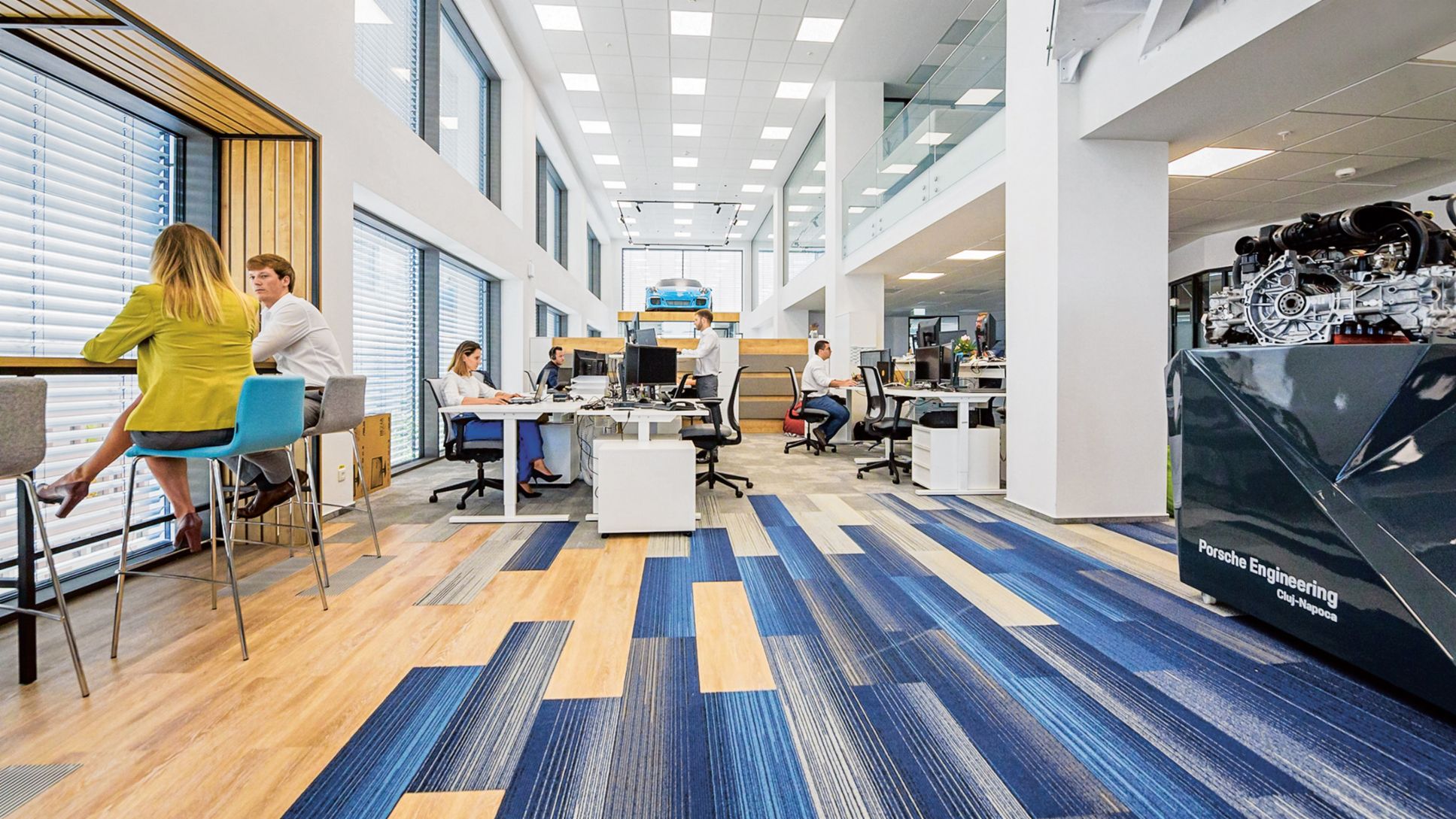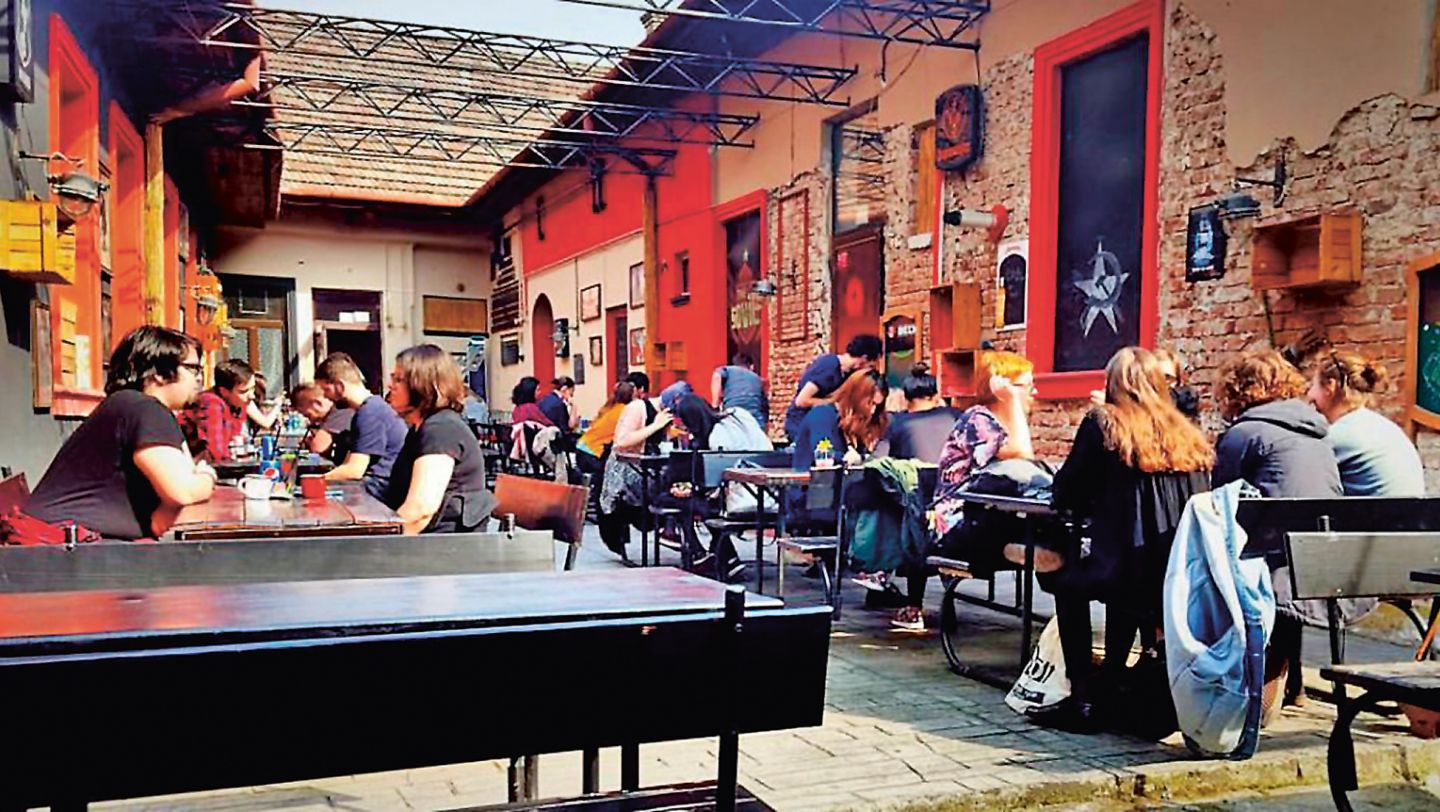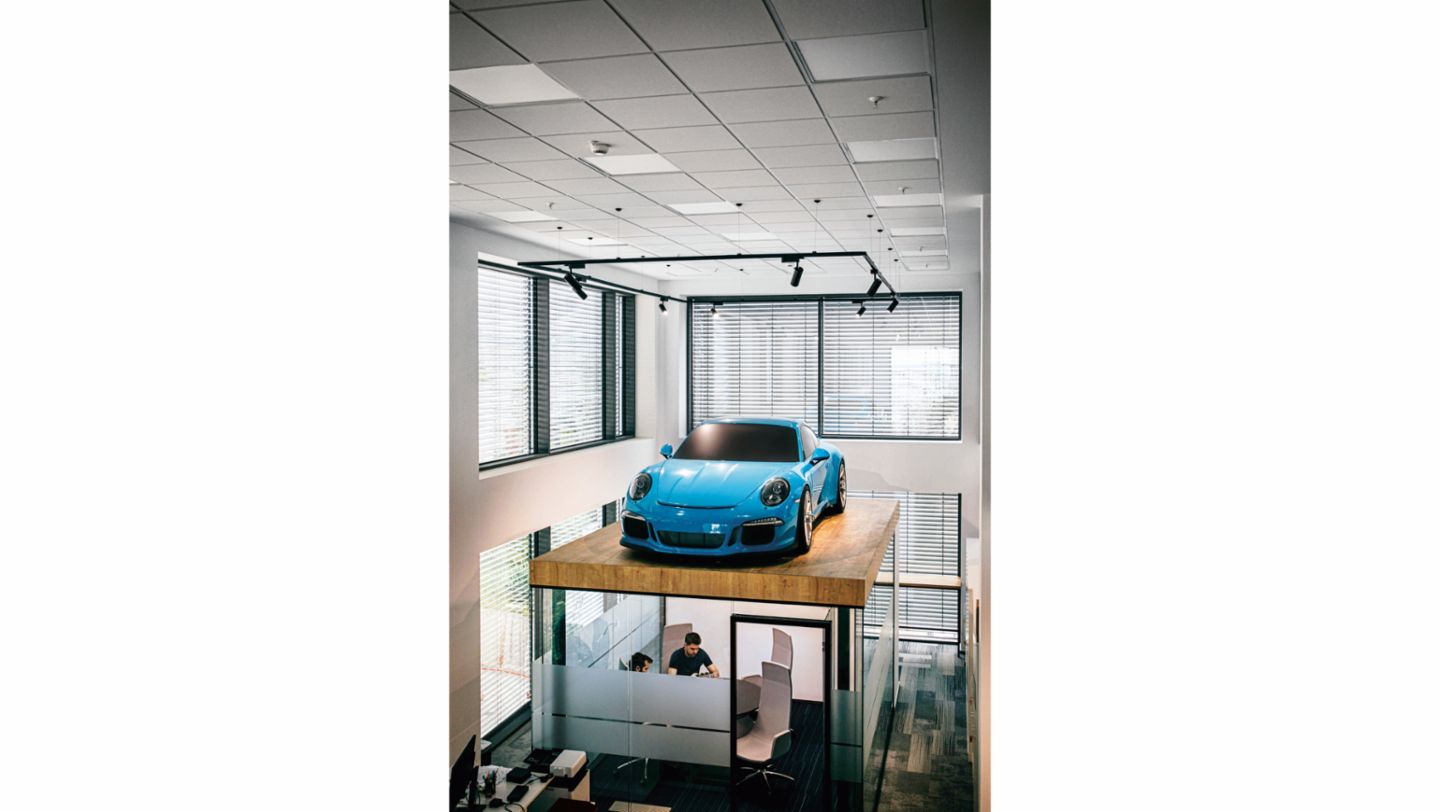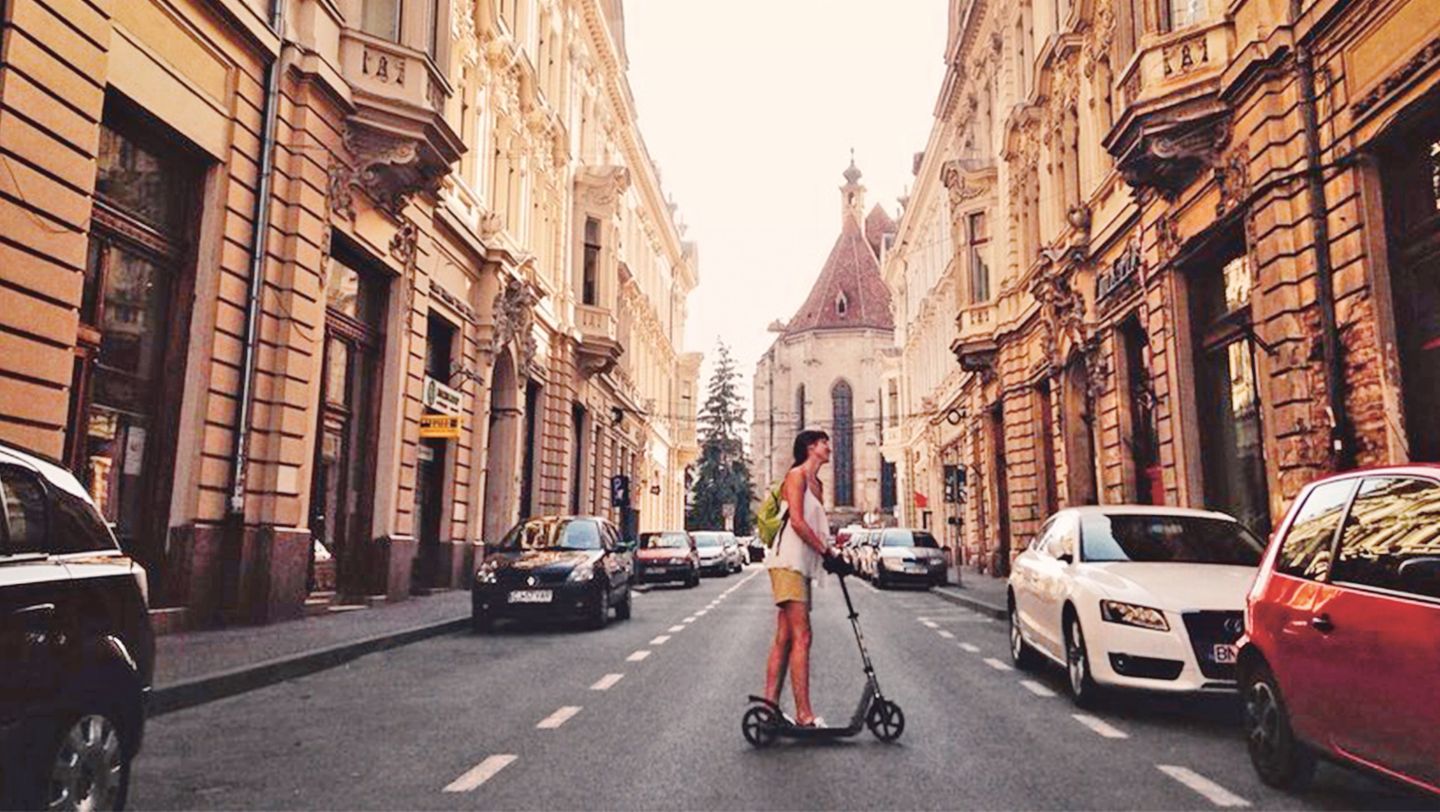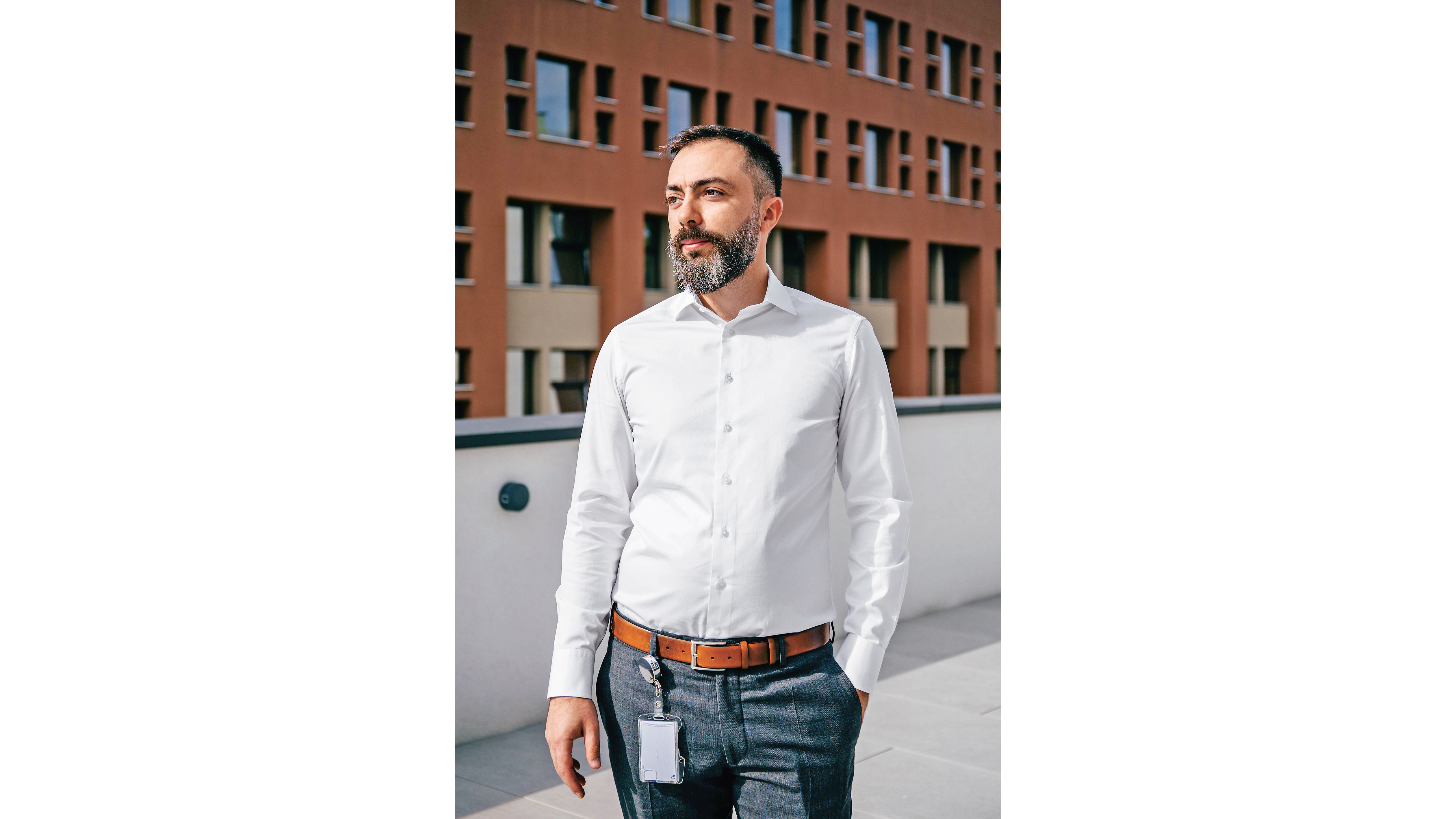It’s a situation that every driver has experienced dozens of times. You’re in the left lane on the highway and instinctively foresee that a car in front is intending to move into the left lane for a passing maneuver and will shortly pull in front of your vehicle. People have a kind of sixth sense for such situations: based on the context and their years of experience in traffic, they conclude that the other driver could be about to cut them off.
Machines still struggle to draw such conclusions. That’s why Adaptive Cruise Control (ACC) currently only reacts when a car actually moves in front of the vehicle from the right or left. “Based on our experience in series development, we came up with an innovative idea: it would be much more convenient if the technology could anticipate the cut-in maneuver and create some space beforehand – just as any experienced human driver does. That's the idea behind ‘cut-in-detection,’ which should make driving even more practical in the future,” explains Philipp Wustmann, Project Manager for Driver Assistance Systems.
Without artificial intelligence (AI), this idea is difficult to implement because the indications of cutting in can only be described to a limited extent by rules and traditional programming.
“The innovative environment and data science expertise in Cluj will enable us to break new ground in vehicle development.” Dirk Lappe, Managing Director Porsche Engineering
That's why Porsche Engineering's location in Cluj-Napoca, Romania, comes into play when it comes to cut-in detection: the software and function developers there work on new vehicle functions, but also innovative development tools.
“An important factor in our future success will be the development and use of AI methods and corresponding tools,” says Dirk Lappe, Managing Director of Porsche Engineering. “The innovative environment and data science expertise at the Cluj location will enable us to break new ground in vehicle development.” Some 160 employees are spread over four floors in a new building blessed with copious natural light—and numerous AI experts. New colleagues are added every month, and the location is set to grow to 210 staff by the middle of 2020.
New solutions soon in series production
The experts in Cluj-Napoca use the latest AI methods such as neural networks or reinforcement learning to develop new driver assistance systems, the autonomous vehicles of the future, or virtual tests of new vehicle functions. “Here we are developing new solutions and features that can go into series production in the near future,” says Marius Mihailovici, Managing Director of Porsche Engineering in Romania. “By working on exciting development projects and cooperating closely with universities, we are continuously expanding our portfolio and our capabilities.”
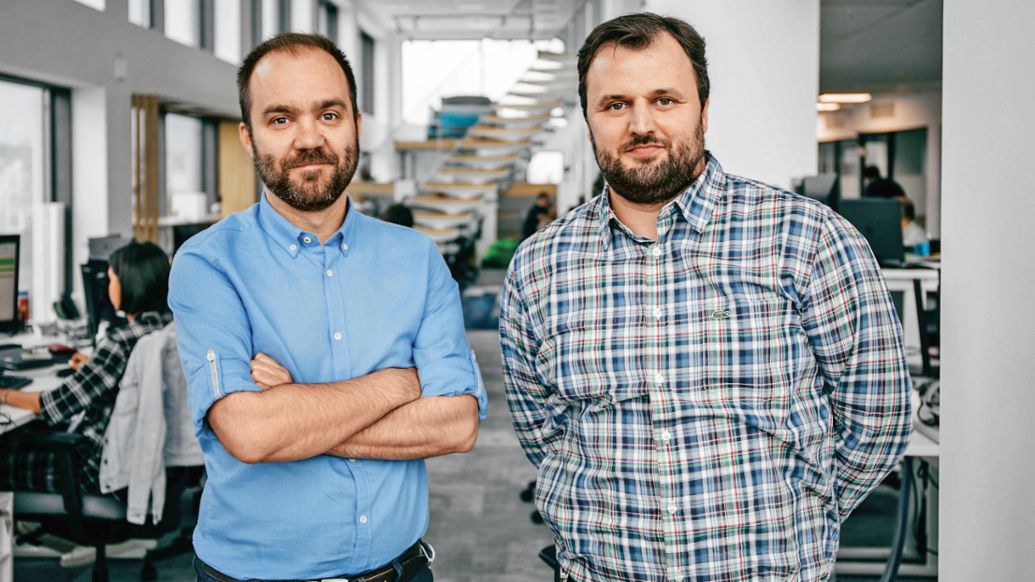
The cut-in detection function uses a neural network: people look at pictures of cars traveling on a highway and press a button as soon as they predict that a car in front will shortly cut in. “In the training phase, the neural network links this human input with the signals provided by the vehicle sensors,” explains Rares Barbantan, a software architect at Porsche Engineering in Cluj-Napoca. “So it learns to predict the cut-in from the sensor data.” With this knowledge, the ACC can react at an early stage to maintain the necessary distance from the vehicle cutting in. The developers in Cluj-Napoca have been working on the new system since late 2018. In many cases, cut-in detection does not require additional sensors—the main information used is the list of objects in the two nearest lanes that is already available for other assistance systems.
The AI experts in Romania also want to further improve adaptive cruise control itself. More precisely: they want to make it more practical and, in the future, able to adapt to the driving style of the vehicle owner. “In the first step, the development colleagues in Prague implemented the core function of adaptive cruise control using conventional methods. In the next step, it is now learning to optimize its behavior with AI in order to adapt in accordance with the preferences of the driver,” explains Tudor Ziman, who directs software development for new functions in Cluj-Napoca. This process involves the use of reinforcement learning: in the simulator and on the road, people evaluate how practical they find adaptive cruise control. From this feedback, the system learns to respond more like a human.
There’s a good reason that Porsche Engineering has concentrated such AI activities in Cluj-Napoca: the city of 400,000 inhabitants counts roughly 100,000 students at six universities. More than 20,000 students study at the Technical University alone, which every year produces around 800 graduates in computer science and automation. And the topic of AI has a long tradition here. “We have been working on it since 1978,” says Professor Sergiu Nedevschi, Vice Rector for Research at the TU Cluj-Napoca and an expert in computer-aided image recognition. “And we have been cooperating with Volkswagen in this area since 2001, with the focus currently on autonomous driving and environment recognition.” He is also talking to Porsche Engineering about a collaboration that will include not only the development of new solutions but also the training of students. Nedevschi has no difficulty finding new recruits for his working group of 25 employees and about 30 students: “The subject is so exciting that the interest is very great.”
Many new solutions unthinkable without AI
Andrei Saupe was bitten by the “AI bug” in 2007. “At the time, I was working on a dialog system based on artificial intelligence,” recalls the Advanced Development Lead at Porsche Engineering, who has been responsible for all AI activities, among other things, in Cluj-Napoca since 2017. “I've been fascinated by artificial intelligence ever since because it enables us to find solutions that would be unthinkable without AI—for new driver assistance systems, autonomous driving and the personalization of ACC, for example.”
“Cluj is an IT city. Many large companies and start-ups that have settled here have recognized that.” Andrei Saupe, Advanced Development Lead
Saupe emphasizes the advantages of the location in Transylvania as well. “Cluj is an IT city,” he says. “Many large companies and start-ups that have settled here have recognized that.” What speaks for Porsche Engineering as an employer, he says, aside from the good atmosphere within the team, is primarily the type of projects done here: “There are many IT outsourcing companies in Cluj, but the developers would rather work on an automotive product—this makes Porsche Engineering an appealing prospect for graduates and experts with professional experience.” Here they can use a whole range of current AI methods, including neuronal networks, recurrent neural networks, convolutional neural networks, reinforcement learning, decision trees, and support vector machines. “But we don't simply use the tools that are currently in fashion,” stresses Saupe. “Rather, we use what fits the task at hand and can be integrated into the vehicle. That is exactly our challenge: We need to make AI usable for the car—and always keep an eye on the safety of all functions.”
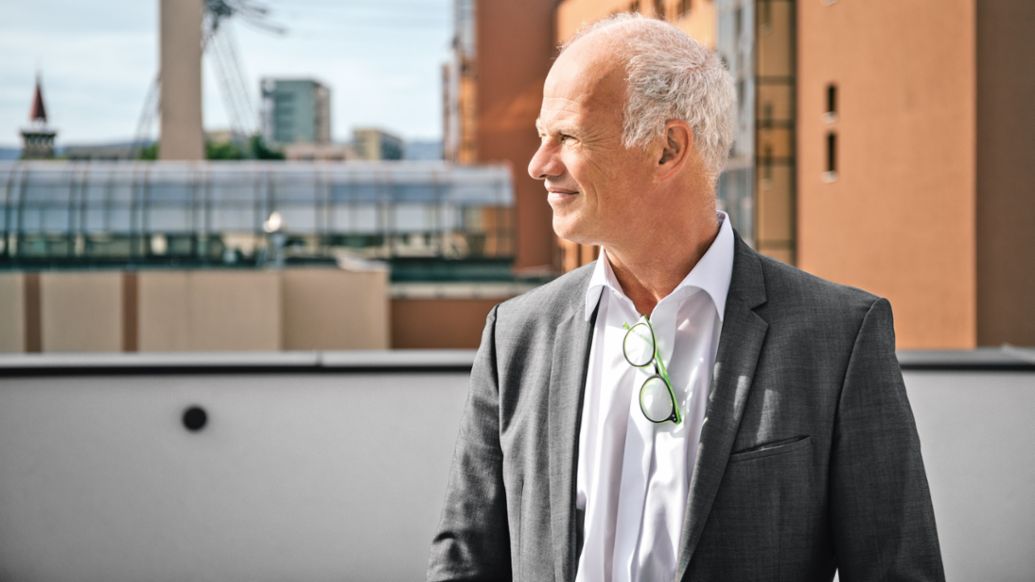
Because the topic of AI will become even more important in the future, Dr. Joachim Schaper has been coordinating Porsche Engineering's activities in this area since July 2019—as well as the collaboration with the company's other locations. “There are also some AI activities in Prague, but our colleagues there are mainly concerned with electronics hardware,” says the experienced research manager. “In Mönsheim, a lot of data is generated that we can use in AI-based functions, for example for battery management.” In his view, this is another attractive field of application for the use of artificial intelligence: algorithms could not only predict problems in the battery cells, but also determine the remaining energy in the energy storage device based on its utilization. It’s an interesting idea that may soon be taken up by the AI experts in Cluj-Napoca.
“Our developers love challenging projects”
Marius Mihailovici has been CEO of Porsche Engineering in Cluj-Napoca since 2016. In this interview, he talks about the opportunities and challenges of artificial intelligence and the strengths of the location in Romania.
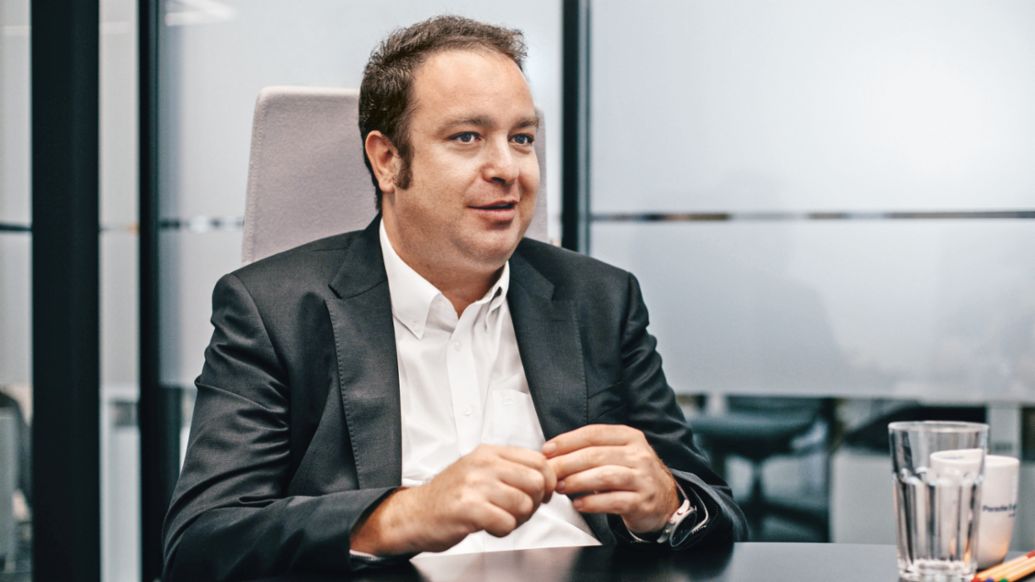
1. What role does artificial intelligence play in the future of the automotive industry?
In the future, there will be no such thing as a vehicle without AI. It assists the driver and makes traffic safer and more efficient. That is why it will be a game-changer in our industry in the coming decade. Vehicles on SAE level 3 already exist, we will see levels 4 and 5 in the next ten years. On the way there, however, we have to grapple not only with the software, but with the entire ecosystem: the legal framework, the ethical questions, and the limits of AI. There are some things that machines—at least today—can't learn. After all, every person has gone through a learning curve of decades since childhood.
“Here in Cluj, we can use the potential of software developers to develop new features—and thus be part of automotive future.” Marius Mihailovici, CEO of Porsche Engineering in Cluj-Napoca
The brain automatically recognizes that a child on the sidewalk could run into the street at any moment—and prepares for that eventuality. One challenge will be to transfer this knowledge to the software.
2. Why is Cluj-Napoca an attractive location for the AI activities of Porsche Engineering?
A few factors come together here. Through the Technical University, there are many well-trained software experts here. They are not only skilled, but also strongly focused on results and open to new technologies such as artificial intelligence. Our developers love challenging projects, always want to learn new things, and enjoy working in international teams. Moreover, many of them speak German, and there is also a cultural proximity to Germany here in Transylvania. So in 2014, the idea emerged that we could use all of these factors to our advantage. And that is also the exciting thing about my job: here in Cluj, we can use the potential of software developers to develop new features—and thus be part of automotive future.
3. How hard is it to attract top talent here?
It’s very difficult because there are many other software companies besides us looking for good employees. We are also experiencing particularly exciting times in the automotive industry because the industry is undergoing fundamental change, not least as a result of AI. Those who work for us can play a direct role in shaping this development. We offer our developers an almost family-like environment that is characterized by trust and transparency. For many employees, that’s an appealing prospect.
Porsche Engineering in Cluj-Napoca

With its roughly 400,000 inhabitants, Cluj-Napoca is the second-largest city in Romania. Formerly known as Klausenburg, Cluj-Napoca lies in the historic region of Transylvania. The addition of “Napoca” comes from a Roman settlement in the same place. Today, the city is shaped by its numerous universities and the many IT companies that have settled there. Porsche Engineering has been in Cluj-Napoca since 2016.
The experts use state-of-the-art AI methods for new driver assistance systems, autonomous driving, and innovative development tools. The location benefits from the high local IT expertise and a long tradition of AI development.
Info
Text: Christian Buck
Contributors: Rares Barbantan, Andrei Saupe, Joachim Schaper, Tudor Ziman
Photos: Mihail Onaca, Lavinia Cernau
Text first published in the Porsche Engineering Magazine, issue 02/2019
